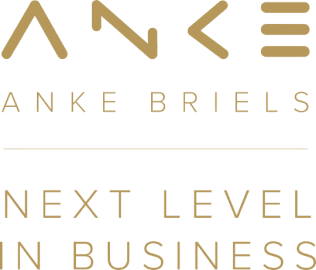5 Vital Lessons in 5 Years of Freelancing
13/05/2020 2020-05-13 9:265 Vital Lessons in 5 Years of Freelancing
1. Set work hours that work for you.
Structure is crucial. So is flexibility. When you’re first starting out, it’s tempting to test the boundaries of the flexible workday: wake up a little later; meet a friend for a long lunch in the park; opt for a post-lunch nap. These are all the wonderful things that become available when you work from home and have the ability to set your own schedule. For some, the opposite is true. Maybe you’re worried about becoming complacent. Maybe you’re excited about your new business and are glued to your computer late into the night.
None of these things are necessarily wrong, but it’s important not to slide to either extreme of the spectrum. You shouldn’t be working so much that you don’t have time for lunch with a friend or an afternoon nap, but you should also be cautious about a free-for-all schedule that lacks structure. A routine has many benefits. I’ve tried a variety of schedules, and this is the general outline of what works for me:
- Wake up early because my brain is more alert in the mornings, and that’s when my body naturally wakes me up.
- Knock out the hard-hitting creativity work first. This is the stuff that requires more of my focus and brainpower.
- Eat regular meals and use that time as a screen break.
- Add in a quick yoga session or outdoor walk—both if I can manage.
- Work the rest of the day in “pockets.” I’ll explain this further below.
- Set a cut-off time, after which I don’t check email or respond to notifications.
2. Adjust as needed.
I swing more Type A than B, so creating structure has never been my biggest challenge. I struggle with letting go, being flexible, going with the flow. My workday was once as early as you can until as late as you can. During that time, I learned that I truly enjoy early mornings. My body naturally wakes me up around 6 a.m. I also learned that about 3 p.m. is when my brain is absolutely done. But if I work from 6 a.m. to 3 p.m. straight, I get eye strain headaches and I’m irritable. Not to mention I’ve missed some of the best parts of the day.
All this to say: Structure is important, but don’t structure your work-from-home life so much that you forget to listen to your body and adjust accordingly. I now schedule my day in pockets of time that best suit me. That includes taking a nap after lunch so I’m not sleepy the rest of the afternoon. It also includes working in short, productive bursts with meaningful and purposeful breaks in between. My way might sound ridiculous to you, and that’s fine. Start building your structure, but remember to check in with yourself and adjust it as needed.
3. When tracking your finances, don’t forget to live.
I love goal setting. I love making a big spreadsheet at the beginning of the year to track my goals. One of my big goals right now is to pay off my student loan debt within three years. I have it all mapped out, and it’s aggressive. With that goal comes savings and retirement account goals. Add that to my monthly bills and self-employment taxes means a big chunk of my cash flow is spoken for before it even reaches my account. I like to manage money that way because it makes me feel more in control of my future. But it can get to be too much. At one point, I was tracking every single daily expense to identify where I spend most. It didn’t leave any room for beautiful, unpredictable life to happen.
My financial tactics are from a mix of personal financial coaches I’ve read and written about. It’s sound advice. But I was forgetting a crucial element: Don’t forget to live. Track your spending, yes, but make sure to leave yourself some fun money—the funds that don’t need to be rationalized or judged. It could be as little as $20 per month depending on your financial situation. The bottom line is that you make room for the unstructured, the benign, the straight-up fun.
4. Understand that money always comes with a cost.
The double-edged sword of working for yourself is that there is always another sale to be made. I’m a writer, so there are always more ideas to send and more publications to pitch. Being the spreadsheet person I am, I know how much an hour of my time is worth at this stage in my career. In other words, I know how much money I could make if I was working rather than taking a nap or playing beach volleyball with friends (one of my favorite hobbies).
One of the greatest lessons I learned is that money always comes at a price. In 2019, I hit a huge financial goal. It was my best revenue year yet. I was living in Hawaii and it felt like my every dream had come true. But I was also at one of my mental and emotional worsts during the summer—my favorite season. I often worked from 4 a.m. to 6 p.m.. Deadlines loomed large, and I often dreamt about my work. Every hobby and fun activity brought feelings of guilt because there was always more to do.
I learned the hard way that every new client and every new gig means more money, but they also come with costs: the cost of my free time; the cost of my mental and emotional health; and the cost of my physical health at times. For me, hitting that financial goal wasn’t worth all the side effects. In 2020, I set a new goal: make enough to be comfortable, and then make time to do anything, or nothing. I’ve had to make some adjustments to my spending habits, but I’ve traveled more, laughed more and created more meaningful memories—to me, those things are priceless.
5. Start new hobbies that don’t have any tangible value.
I cannot stress this enough. I’ve been writing about and practicing some form of personal development for nearly five years. I believe in goal setting, accountability, structure, hustle, self-care, productivity hacks… the list goes on. I’ve also learned that it becomes easy to conflate personal development with some kind of tangible step forward. In other words, every action you take during the 1,440 minutes of the day must move you toward some goal—otherwise it’s useless. For me, it took some flirtation with burnout to realize that becoming the best version of yourself is also about doing things you enjoy, simply because you enjoy them.
Take a break from your Jim Rohn collection to read some romance novels without feeling guilty. Write a short story without worrying about whether it’s good or marketable. In fact, don’t let anyone read it so you don’t feel external pressure. Build a birdhouse so you can look out the window and revel in the simple art of mastery without wondering whether it could turn into a profitable side hustle.
These hobbies round us out as people. They allow us to stretch some creative, competitive muscles while keeping the stakes at a nice, pressure-free zero. If you fail? Awesome. Try something else. If you’re terrible at the hobby but love it? Even better. Keep going and learn to laugh at all the feelings of I should be better at this.
Source: success.com



